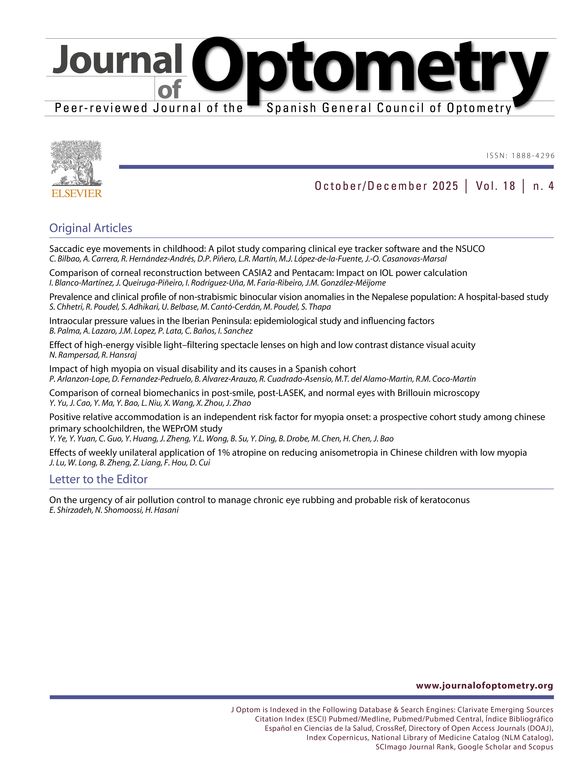Optometry has experienced a very significant development in the last years, being the scientific advance and the higher level of academic formation the main reasons for this achievement. The number of scientific journals on Optometry and the number of publications on the results of researches conducted by optometrists have increased significantly, including investigations in collaboration with many other health professionals. All this scientific production, including articles from Journal of Optometry, is a valuable tool for optometrists for performing a more consistent and reliable practice, with the inclusion of new validated clinical techniques or procedures. Indeed, this scientific advance and the improvement of its diffusion have led to the development of the concept of evidence-based optometry. However, the development based on research cannot be confused with the development of uncontrolled clinical experimentation. Optometry must advance but considering the ethical standards, avoiding the use of uncontrolled experimentation as a marketing concept for cajoling patients. The idea of being an open-minded professional for using this type of experimentation must be dismantled.
The most important set of guidelines about research on human participants is the Declaration of Helsinki, which was adopted by the World Medical Association's General Assembly in 1964 and has been reviewed and revised regularly according to the new social and legal requirements.1 These guidelines reflect and shapes the ethos of international research ethics and must be followed strictly by optometrists when performing research or considering the application of a new treatment option.1 There are no exceptions and it is not only a question of including a sentence in the paper stating that the research follows the tenets of the Declaration of Helsinki. These guidelines must be really considered point by point when designing and performing any type of research on the different areas of Optometry. This Declaration is the most optimum ethical framework considering not only patient autonomy, but also aspects as distributive justice and beneficence.2 While the Declaration is aware of the need to facilitate research, it is equally aware of the need to protect the vulnerable, and of the practical difficulties involved in that protection.2
One critical issue is to avoid the use of vulnerable groups or individuals who are at higher risk of harm, because cannot consent due to their position or to the fact of being at increased risk of coercion,3 as individuals for performing uncontrolled experimentation. This is especially true for children with neurological disorders, specific learning problems or brain injury whose parents will apply any type of experimental treatment in the attempt of obtaining a miraculous result. A great variety of non-validated treatments have appeared in the last years that are being applied for recovering complex cases with unusual optical aids or specific visual trainings. The use of these non-validated approaches as well as their advertising claim is a way of performing uncontrolled experimentation and an unethical practice and are contributing to the deterioration of our professional image. New visual and optical treatments in vulnerable groups or complex cases must be investigated and validated with honesty and following the ethical guidelines, as many authors have done and reported in Journal of Optometry.3–5
In conclusion, research is crucial for the advance of Optometry as it is the way of finding new options of managing and solving problems for patients. However, this does not mean that uncontrolled experimentation can be done in any practice without following the ethical standards, especially in the most vulnerable groups. Uncontrolled experimentation is not an open-minded professional practice; the ethical research is the answer for validating new therapeutic approaches.
DisclosureThe author has no proprietary or commercial interests to disclose
David P Piñero is supported by the Ministry of Economy, Industry and Competitiveness of Spain within the program Ramón y Cajal, RYC-2016-20471.








